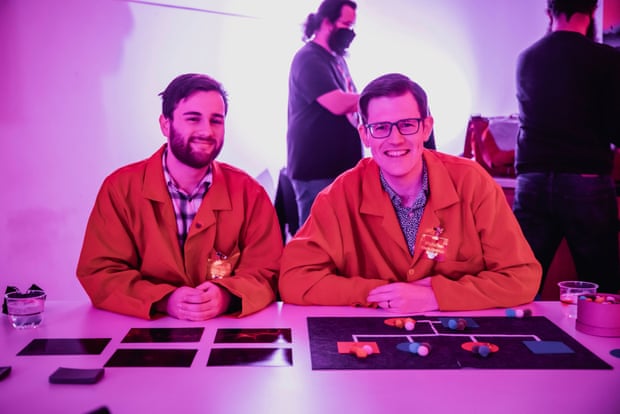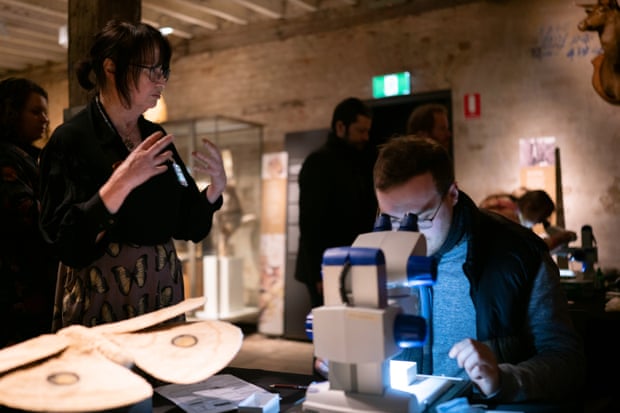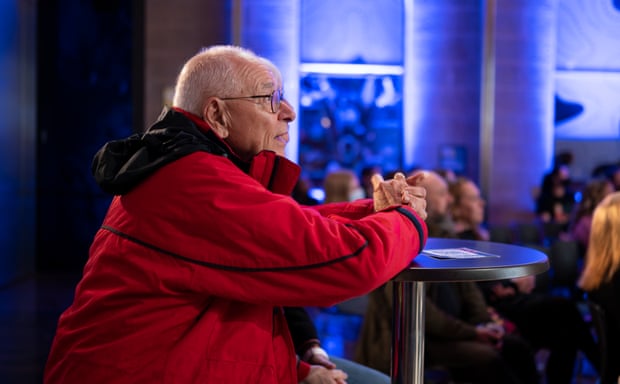‘Not Strange Elites’: Scientist Brings Urgent Message to City of Hobart | Chemistry
Hobart’s role as a center for marine research means you’re more likely to run into scientists than any other city in Australia.
At the start of National Science Week, which concludes this weekend, they were even more likely to be spotted, as they were wearing LED name badges with their names and research keywords.
These “mobile scientists” gathered at the Beaker Street science and arts festival in the city center to chat with attendees and try to dispel the myth that science is done behind closed doors.
In the six years since its inception, the festival has grown in scale, with conversations taking place beyond Hobart’s festival hub. Attendees can hit the fields with the scientist as part of the festival’s Road to He trip, from guided walks through the ancient flora of Cradle Mountain to the dark skies of the East Coast.

According to festival executive director Margo Adler, the point of Beaker Street is to share the fact that “science isn’t just about people in laboratories with test tubes, it’s about everything.” is.
“We have a panel of deaf people who are experts in nonverbal communication… we’re talking about the science of the Tasmanian Symphony Orchestra conductor wielding his baton,” says Adler.
Combining science with bars, live music and art, Adler says:
“I’m really curious about what exclusive science can be like. Imagine a university that brings in interesting researchers to speak at 30-person departmental seminars every week. And the general public Not invited.
“Instead, you’re just talking to the same person over and over again.”

Adler said the lack of accessibility to science also means that scientists will be “trapped in a tunnel” and miss out on the ideas that can be generated by talking to people with different ways of thinking. .
“I think it’s really important to bring non-scientists together with scientists and get people to challenge their ideas and make completely out-of-the-box suggestions,” she says. “Sometimes they are the best suggestions.”
Zoe Keene, science communicator and road trip host, believes that engaging with scientific ideas not only allows people to better understand the beauty and complexity of the universe, It also states that it has an imminent function.
“Over the last few years, we have seen how dangerous it is that communities are not given the tools to understand science. There is potential,” says Keen.

Karl Krzelnicki, who has been at the forefront of making science more accessible for decades, reiterates the importance of scientific literacy for interpreting news.
“Since science is the way not to be deceived, [people] Don’t be fooled by lies about Covid vaccines, flat earth and climate change,” he says.
But “there is a need to increase the scientific background knowledge solely for the selfish purpose of pressuring politicians to do something economically good for the country”.
An Australian study showed that investing in health research and development yields a return of $5 for every dollar spent.
However, Krzelnicki says he is frustrated by the erratic funding for work at government research institutes such as CSIRO and the weather office.
Adler says that making people understand that scientists “are not some weird elite” will help restore public confidence.
Insight into scientific processes can help the general public understand that evolution and acceptance of climate change are not matters of belief, but ‘understanding how the world works’.
“Right now, divisiveness in our culture is really a problem, and I think part of what we’re doing at festivals is trying to combat that.”













